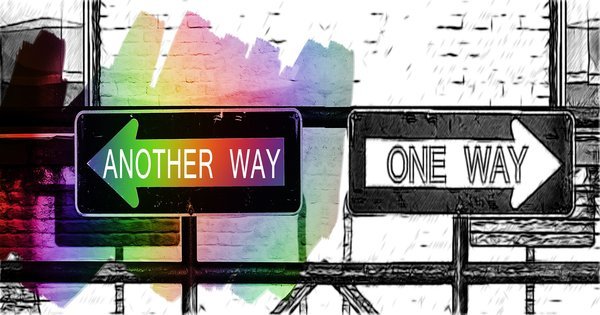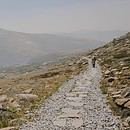Ban The #StrawBan

For as long as I can remember, I have cared about the environment and all living creatures. I was that child who would see the World Wildlife Fund commercials about the endangered animals and cry. I signed up for my first email account when I was 11-12, and shortly after that I started subscribing to their newsletters, along with lesser known organizations. In high school, I began recycling and reusing what I could. I also started participating in Earth Hour and I researched things such as different forms of energy in my spare time. The primary reason I did not go into environmental or conservation science, was because I didn’t think I could physically do the job. As much as I want to, I cannot just pack up and go save the tigers in a rainforest.
I am telling you this to give some insight on how much this means to me. How upsetting it is when people push my concerns away because they think I’m making too big of a deal out of everything.
When I was 10 months old, I was diagnosed with Spinal Muscular Atrophy, a neuromuscular disease. The way my parents described this to me as a kid was that our muscles have thousands of little bridges surrounding them for messages to cross over from the brain. These messages tell the muscles to move, and it all works together to raise your leg, for example. However, most of my bridges are broken, so not all of the messages can get across. Some do, making it possible to move a little, but because a majority do not, my muscles don’t work and shrink.
Now, because of the non-working, shrinking muscles, I have very limited mobility. I have never been able to move my legs more than a couple centimeters, if in the right position. I used to have almost full motion in my arms, but over time I have lost most of it. I can now really only move my forearms and hands, but even they are extremely weak. One arm is significantly weaker as well, making it so that I really can only use the other one. To give you perspective, a baby kitten once pulled a toy from my hand because it was stronger than me.
Given the circumstances, I can still do quite a lot. I can feed myself, write, and even type faster than anyone in my family. That is, if my laptop is sitting in just the right spot and I am positioned well in my wheelchair. If things are within my reach, I can get by on my own throughout the day pretty much. I can do quite a bit, I just have to do it a different way and it usually takes me longer.
I mentioned being able to feed myself. I can physically feed myself, but somethings are very difficult for me to eat. For example, because I can primarily only use one arm, I can not hold a fork in one hand and a knife in the other. Therefore, someone has to cut my food for me, if required. I need sandwiches cut in half usually because they’re too heavy or too difficult to hold with one hand. Soup has to be on my hospital table and raised up near my face because I cannot lean over.
And drinks need a straw.
There is a huge movement happening right now to ban plastic straws. Plastic is horrible for the environment and dangerous for animals in many ways. The amount of plastic used in the world is appalling. So, my question is why straws? Yes, I know about the turtle video. But there are so many other things made of plastic that people could go after. What about plastic bottles? People get water bottles, Coke bottles, Gatorade bottles, etc. so much! They’re everywhere.
Straws are necessary for so many people. It’s not that we want them to make life easier. They are NECESSARY. Don’t you think I wish I didn’t need them? I cannot physically lift up a drink most of the time, though. If I am sitting just right, the cup is in a good spot, it’s not full, and I’m not particularly tired that day, I can pick up the drink. Most of the time, that is not the case.
I need straws to drink everything: hot drinks, cold drinks, everything. Like I said before, I cannot bend over either, so bendable straws are key to my independence. Straight straws can often be too short or too tall, and if one cannot move the drink or their body, it becomes extremely tricky to use. However, it is still better than no straw at all.
There are many alternatives to plastic straws, as people have continuously pointed out to me since this #StrawBan movement picked up. There are paper straws, stainless steel straws, hard-plastic reusable straws. As André Picard pointed out, though, “if you have trouble drinking, you are quite likely to have trouble washing and carrying a reusable straw.” I cannot do the dishes; I rely on someone else to do so. Therefore, if someone forgot or didn’t get around to it, I wouldn’t be able to use them.
There is also a new collapsible travel straw. However, I don’t believe I would physically be able to unfold it to use. Paper straws seem to be what most people are suggesting. If you have ever used a paper straw, you know how quickly they disintegrate. Often times, if a person with a physical disability knows they won’t have help going to the restroom for a while, or they know they won’t be able to get another drink for a while, they will make a single drink last a significant amount of time. For example, the root beer I have sitting next to me has been here for over 7 hours. Had I used a paper straw, it would have fallen apart right now and made my drink gross with little paper bits.
I want to protect and save the environment as much as the next person. I do not think banning such a necessary accessibility tool is the way to do it, though. Yes, cut down on the usage. Make it so someone has to ask for it at a restaurant instead of giving one to every person. But do not ban them completely. Do not make this world even more difficult to live in independently for those with physical disabilities than it already is. Stop using them if you don’t need them, but please do not take away such a simple tool from those who truly need it.











Great read! Thanks Caitlin!